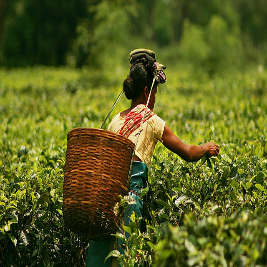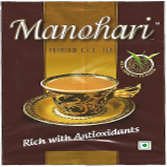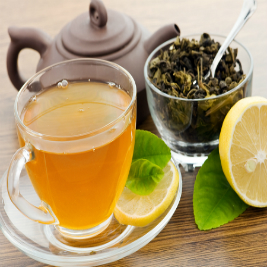
Herbal Favorites:
Who doesn't love a good cup of mint or chamomile tea? But did you know that peppermint is a strong intestinal medicine (maybe too strong for some—especially children), but spearmint is much gentler and is a tonic for the stomach, specifically, rather than the entire system?
While peppermint is a good tonic for long-term digestive complaints, it's better to have spearmint after a meal because it stimulates digestive enzymes and helps digest protein in a way that peppermint doesn't. Further, if you are a 'hot' person (prone to anger, sweating, high blood pressure), peppermint can heat you up even more; spearmint, on the other hand, is quite cooling and calming.
Next to black tea, chamomile is the most popular tea in the world. Most everyone knows that chamomile is a calming herb, suitable for cranky children (and cranky adults), but chamomile is also cooling and drying. If you are already chilled or suffer from a dry condition, chamomile can aggravate your complaints. Further, as a member of the ragweed family, people can occasionally have allergic reactions to the chamomile flower.
So, as you can see, herbs are medicine, whether they're served after dinner or dispensed by an herbal practitioner. Be sure to educate yourself, never taking for granted the appropriateness of what you're sipping.
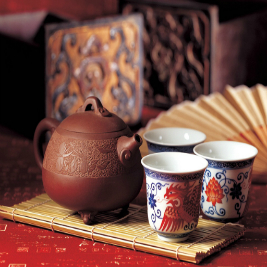
Chinese Teas:
Okay—on to the fun new stuff. So here's what I've learned, and this is essential to all of the Chinese teas (and perhaps to herbal ones, as well—I haven't tried it yet): they must be rinsed prior to brewing. What does rinsing do? It takes most of the caffeine away, rinses off any dust or debris the leaves may have accumulated, and also 'wakes' the leaves up, creating space between them and allowing for a better brew.
How to rinse the tea? Simply infuse the leaves by pouring hot water over them, swirl the pot once or twice, then pour the water off. Then use fresh, hot water to infuse your tea. If you're using really good tea leaves, you can usually use the same leaves for three or four brews (just make sure these are all in the same day; don't go putting your leaves in the fridge to use tomorrow).

Green Tea:
So, most of us know about the medicinal benefits of green tea: it's an antioxidant, lowers cholesterol and raises HDL (that's the good cholesterol), and raises metabolism. But green tea can also reduce fatty deposits in the liver, can boost immune function, and kill bacteria living in the mouth (hello, date night?).
To use: rinse your tea, then brew in a preheated pot with water that has boiled, but then cooled 3-5 minutes. Using good leaves? You only have to brew green tea for 30-60 seconds to get all the health benefits. Brew up to three minutes. Drink green tea in the morning only—it's too stimulating for later in the day (and avoid putting milk in it—just drink it straight; if you only brew for a minute or so, the tea won't be bitter and won't need any palatable additives).
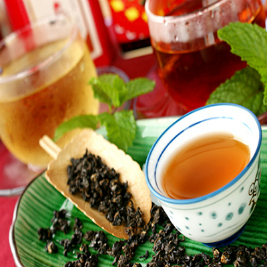
Oolong Tea:
There are several kinds of oolong teas. Oolong is a type of tea that has been dried in the sun and then oxidized (or fermented). Benefits include: weight loss, aging prevention (due to antioxidants), lower blood pressure, prevention of tooth decay (antibacterial), stress relief, and liver detox (which, in turn, helps treat skin problems such as acne and eczema), and lower blood sugar levels.
To use: rinse tea and then brew with boiling water, anywhere from 30 seconds to a few minutes. You can brew good leaves several times over. Drink oolong about 20 minutes after lunch for maximum digestion and fat burning tea-awesomeness (and again—no milk).
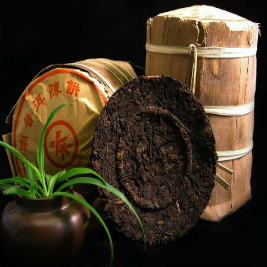
Pu'er Tea:
Pu'er Tea (named for the town in the Yunnan Province) is basically (very basically) a green tea which has been aged in a dark location for years, leaving it oxidized and fermented. Pu'er tea has all the benefits of green and oolong teas, but has also been shown to have a preventative and positive effect on fighting cancer.To use: rinse and brew like oolong tea. You can drink pu'er tea at night, as it can help prepare the body for sleep. Try it before 8pm (unless you're like me and that's your bedtime…then try it at 6:00).
Founders


Consultancy
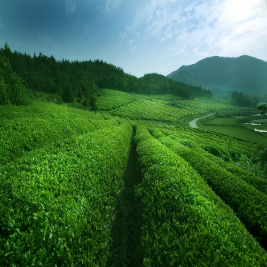
C King Tea provides consultancy services when it comes to running tea plantations. With a cumulative experience of decades of plantation management knowledge under belt, we consult parties on how to facilitate their plantations, the upkeep of the plantation, kind of machinery required, personnel, etc.
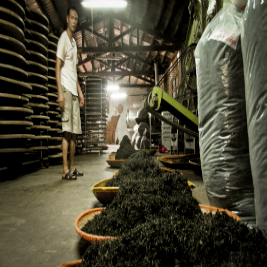
C King Tea offer consultancy services to tea manufacturing plants as well as tea business owners on how to conduct the manufacturing process properly. C King Tea comprises of industry experts who have been associated with functional tea manufacturing plants and units for several years and hold academic as well as esoteric knowledge over the manufacturing process of tea.

C King Tea, offers consultancy services on Budgetary Control such that there are no unforeseen expenditures with respect to this. C King Tea's consultancy covers all the grounds of the tea manufacturing process such that all kinds of costs are included in the study. Advice is given on cost reduction, better alternatives, cost reducing measures, but more importantly how to get more out of investing less.


